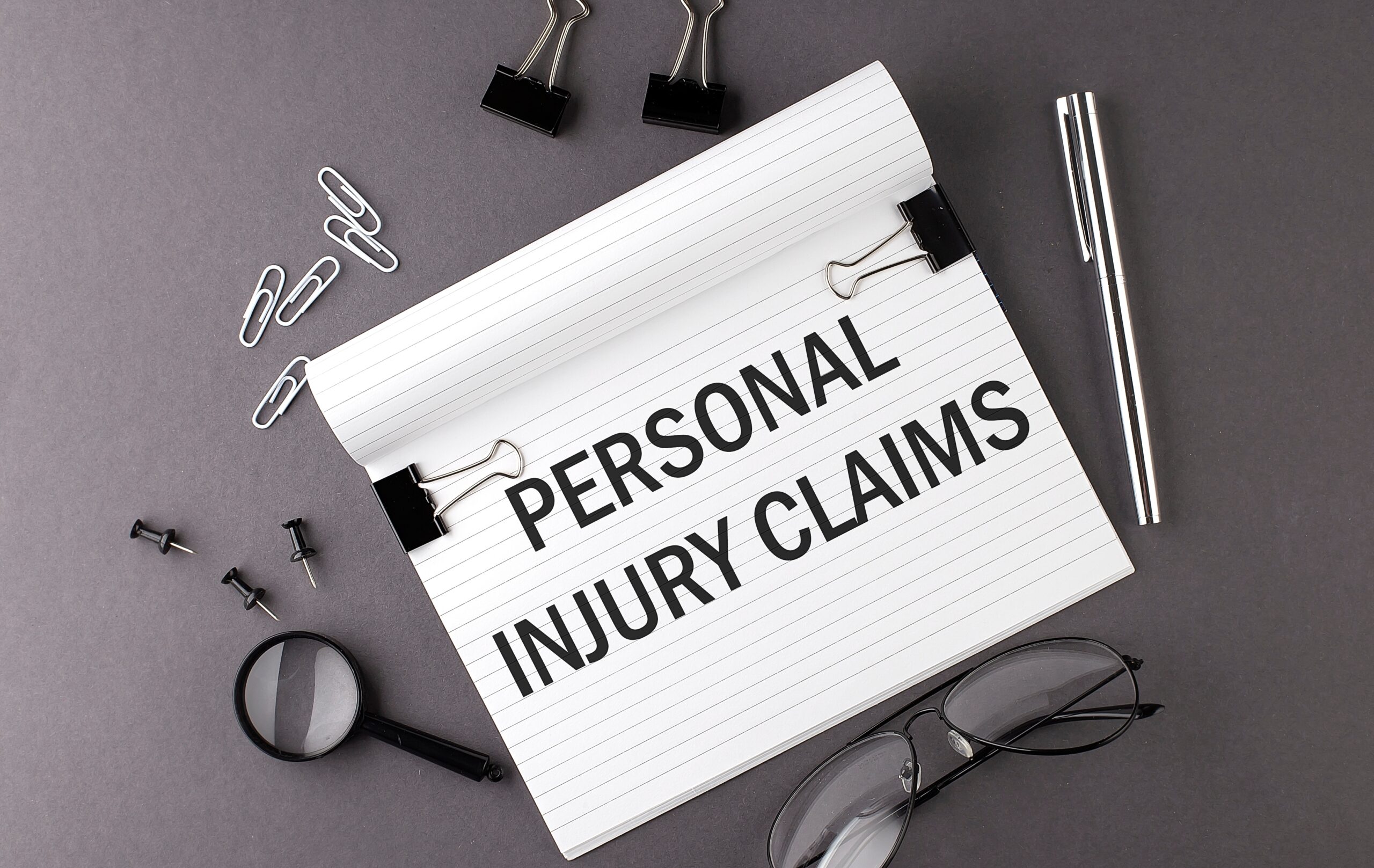The brain is one of the most important parts of the body, but it is fragile. When you suffer an accident, the brain is at risk of injury. Concussions are one of the primary types of brain injuries accident victims suffer most.
You may have a valid injury claim if you’ve sustained a concussion due to another party’s negligence. A personal injury attorney can help you navigate the intricacies of these claims to help you obtain the most favorable result.
Schedule a Free Initial Consultation
What Is a Concussion?
If you’ve ever had an accident or played contact sports, you’ve likely heard of concussions. A concussion is one of the most common kinds of brain injuries.
Concussions fall under the category of traumatic brain injuries (TBIs). This type of brain injury occurs when you suffer a sudden and significant blow or jolt to the head or the body, causing the head and brain to rapidly move back and forth.
When the brain moves or shifts within the skull, this can cause damage. For this reason, this type of injury causes a change in brain function, whether temporarily or permanently. While many recover from concussions, others can suffer lasting effects of their brain injury.
Symptoms of a Concussion
A concussion’s symptoms depend on the injury’s severity and harm to the brain.
Common concussion symptoms include:
- Persistent headache
- Ringing in the ears
- Blurry vision
- Nausea or vomiting
- Fatigue
- Issues with memory
- Difficulty balancing
- Sensitivity to light and sound
Loss of consciousness is also a common symptom of concussions, and the length of time a person is unconscious is a tell-tale sign of the seriousness of the injury.
Unfortunately, the signs of a concussion may not be clear after suffering the injury. You may feel fine at the moment and believe you’re unharmed. Some symptoms of concussion may take hours or even days to appear.
After being in an accident that can potentially result in a concussion, like a car crash, you always need to seek medical attention to determine whether you’ve suffered a concussion. The earlier you receive a diagnosis, the sooner you can begin treatment.
Diagnosing a Concussion Injury
Diagnosis is key to figuring out the extent of your brain injury and beginning to treat it as soon as possible. A medical professional can utilize several methods for determining whether you are suffering from a concussion and, if so, how bad it is.
They may start with a neurological exam, which tests your balance, reflexes, coordination, and sensations. Additionally, they may perform a cognitive test to examine your thinking skills, including your ability to recall information and memories.
Your doctor may also recommend imaging tests, giving them a visual of what’s happening inside the brain. These imaging tests may include a computerized tomography scan (CT scan), which uses a series of X-rays to get a good view of the skull and brain, or magnetic resonance imaging (MRI), which uses radio waves and magnets to get detailed imaging of the brain.
Additionally, if your symptoms are severe, your healthcare provider may want to keep you in the hospital for observation.
Diagnoses for concussions typically involve determining the “grade” of the injury. Concussion grades are as follows, though these are only for the initial diagnosis and not an indication of a lasting prognosis.
Grade 1 Concussion
A grade 1 concussion is technically considered mild. It is worth noting, however, that even if your physician diagnoses you with a “mild” concussion, it does not mean you’re out of the woods. Unfortunately, you may still experience more severe delayed symptoms and even feel the injury’s lasting effects. In reality, no concussion is ever mild, despite the diagnostic language that doctors might use.
With a grade 1 concussion, there is no loss of consciousness.
Instead, you may suffer from:
- Headache
- Memory loss
- Difficulty concentrating
- Dizziness
- Nausea
Grade 2 Concussion
The symptoms of grade 2 are similar to those of grade 1, but you may also experience loss of consciousness. You may also experience ringing in the ears, irritability, or brief amnesia.
Grade 3 Concussion

Grade 3 concussions are considered the most severe from the start. With a grade 3, you may lose consciousness and experience symptoms for a longer period. You are also at risk of suffering permanent brain damage. These more significant concussions require immediate medical attention and treatment.
Always remember that any concussion is a serious injury. Even those who receive a grade 1 diagnosis can develop lasting symptoms and complications over time. Doctors need a grading scale for initial symptoms, but this scale does not determine the long-term effects of your concussion.
Treatment Options for Concussions
Recovery from a concussion requires plenty of rest. Your doctor will likely instruct you to take it easy for some time and avoid strenuous activity to allow the brain to heal. Your doctor may provide pain medication and other prescriptions to treat symptoms.
In severe cases, concussions may require surgery if the injury causes complications, such as increased brain pressure or bleeding.
Potential Long-Term Effects of Concussion Injuries
Concussions often have lasting effects that impact your health, well-being, and quality of life.
Some of the most common potential long-term effects after suffering a concussion include:
- Severe headaches: Painful headaches that come and go frequently
- Vertigo: A sensation of dizziness or feeling off-balance
- Persistent post-concussive syndrome: Post-concussive syndrome refers to symptoms of a concussion that continue for weeks after suffering the injury. However, if these symptoms last beyond three weeks, the syndrome is considered persistent.
Brain injuries are serious, no matter the grade of your concussion. Unfortunately, if you sustain a concussion, you are at risk of suffering from the persistent effects of the injury, which can impact your life and relationships.
What Causes Concussions?
Concussions don’t just happen randomly; it takes a substantial hit and plenty of force to cause this type of brain injury.
Various kinds of accidents and incidents can result in concussions, including:
- Car accidents
- Truck accidents
- Motorcycle accidents
- Pedestrian accidents
- Slip and fall accidents
- Physical violence
For example, in a car accident, at the moment of impact, you may hit your head on the steering wheel, the side window, or the headrest. A moving object may also hit your head. Any of these situations can result in serious brain trauma.
After an accident, getting medical help as quickly as possible is essential. Injuries are not always evident immediately after an accident, but a physical examination and other medical tests can provide critical answers, as time is of the essence with these injuries.
Understanding Concussion Injury Claims
You may be eligible to take action when you suffer a concussion due to another party’s actions or wrongdoings. Depending on the circumstances, pursuing compensation for your harm and losses may involve submitting an insurance claim or filing a personal injury lawsuit.
Whether you file a claim or a lawsuit, you must address several critical matters, including determining the cause of your injuries, proving liability, and calculating your damages.
Liability for Your Concussion
If someone is to blame for your concussion, you’ll need to prove that the party is responsible and liable for your losses.
Concussion injuries may result from purposeful actions, but in most cases, these injuries arise from negligence. When a party is negligent, this means they failed to act in the manner a similarly situated party should have acted.
Establishing negligence involves four crucial elements: duty, breach, causation, and damages.
First, you must establish the responsible party owed you a duty of care. For example, when driving a vehicle, a driver has a duty to drive carefully and responsibly to keep themselves and others safe. Duty is the first element because if the party did not owe you a duty, they are not typically liable for your injuries.
If you’ve established the party owed you a duty, you must proceed to prove they breached this duty. Continuing with the same example, if a driver drives while distracted or drives under the influence of alcohol, these are both prime examples of breaching their duty. A reasonable driver will not drive distracted or impaired, as either can cause accidents and injuries.
If the party breached their duty, you must next create the connection between their breach of duty and your accident. If the party breached their duty, but this was not the actual and proximate cause of your accident, it will be nearly impossible to hold them liable. Showing the link between the breach and the accident is imperative.
Finally, you must prove you suffered damages as a result of the party’s negligence. Damages can include injuries (like a concussion), property damage, and other monetary and non-monetary losses.
Should you successfully show the party’s negligence, you can pursue the compensation you deserve.
Potential Damages for a Concussion Injury
When you suffer a concussion, you’re likely to face many financial challenges. For this reason, seeking monetary recovery can help cover many of the related expenses and losses.
Damages can include economic and non-economic losses, including:
- Past and future medical expenses, like doctor’s visits, medication, and surgery
- Therapy and rehabilitation
- Pain and suffering
- Emotional distress
- Disability
- Loss of enjoyment of life
Several factors determine the value of your case and the amount of damages you may receive, including:
- The severity of your injuries
- The extent of medical treatment you require
- Whether you need medical care in the future
- Whether you needed to take time off of work
- Whether you will return to work in the same capacity as before
- Any other financial or non-financial losses you experienced as a result of your accident and injuries
A skilled personal injury lawyer can examine the details of your case to decide how much your case is worth. Once there is a clear understanding of the value of your claim, you can feel confident knowing you’re working toward obtaining full and fair compensation.
Pursuing Compensation Under a Concussion Injury Claim
If you’ve suffered an accident, like a car or truck accident, you’re likely to start your claims journey with an insurance claim.
Typically, you can file a collision claim under the liable party’s insurance. The insurance company performs its own investigation into your accident and makes determinations regarding whether to accept or deny your claim and how much to pay out.
In the best cases, you can expeditiously and efficiently submit your claim, have the insurance company review it, and receive your money. However, in many cases, it’s not that simple.
Insurance companies are notoriously difficult and often employ several tactics to limit their liability. This can present challenges on your path to compensation.
Should the insurance company deny your claim or fail to provide enough compensation to reasonably cover your losses, you can discuss options with a personal injury attorney. Your lawyer may file a lawsuit on your behalf to attempt to get a greater settlement.
If you do file a personal injury lawsuit, this can require extra time. Your attorney will take all necessary steps involved in a lawsuit with the end goal in mind: a favorable settlement outside of court. Fortunately, a grand majority of cases eventually settle without having to go to trial.
No matter the road you take to compensation for your concussion, if you have a knowledgeable lawyer on your side, you can trust them to work with your best interests in mind at all times.
After Suffering a Concussion, Seek Legal Guidance

Sustaining a concussion injury is nothing to be taken lightly. It can take a toll on your physical well-being, as well as your mental health. If someone’s negligence results in your harm, you have the right to seek justice and compensation.
After sustaining a concussion, consult with a lawyer as soon as possible. There are time restrictions to take legal action. When you hire an attorney, they’ll begin working on your claim as quickly as possible to avoid any potential complications.
A personal injury lawyer can provide the assistance, support, and guidance you need while they handle your concussion injury claim, giving you time to focus entirely on the things that matter, like your health and recovery.
Schedule a Free Initial Consultation Today!



